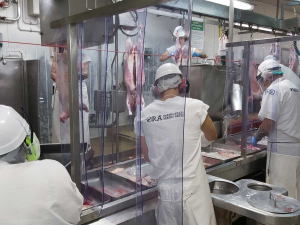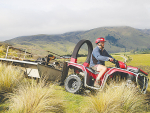It took 10 minutes for co-workers to free the victim’s hand from the machine.
A worker may never have full use of her hand again after it became stuck in an unguarded machine at a meat processor.
Fresh Meats NZ Limited was sentenced at the Napier District Court on Friday and ordered to pay $293,000 in fines and reparation after a worker’s hand was caught in machinery.
The slaughter and processing company processes over 250,000 lambs a year.
In November 2018, a worker, cleaning the chains used to move carcasses when her arm became trapped in the moving parts.
It took the victim’s co-workers 10 minutes to help remove her hand from the chain. As a result of the incident she suffered extensive lacerations and trauma to muscles, tendons, nerves, blood vessels and bones in her right hand and wrist.
WorkSafe acting chief inspector Danielle Henry said the worker’s injuries were so serious she would never recover full mobility in her hand. WorkSafe’s investigation following the incident found that the machinery was unguarded.
“The importance of machine guarding has been a focus area across all industries for many years,” said Henry.
“Though a task instruction sheet prepared by the company clearly stated that machinery should only be cleaned when it was turned off, our investigation found it was common practice for staff to clean the machinery while it was moving.
“Fresh Meats NZ Limited had gone so far as to identify a hazard, but then did not make sure the safe system of work was in place.
“Writing down a health and safety plan is one thing, but it must be implemented.”



















